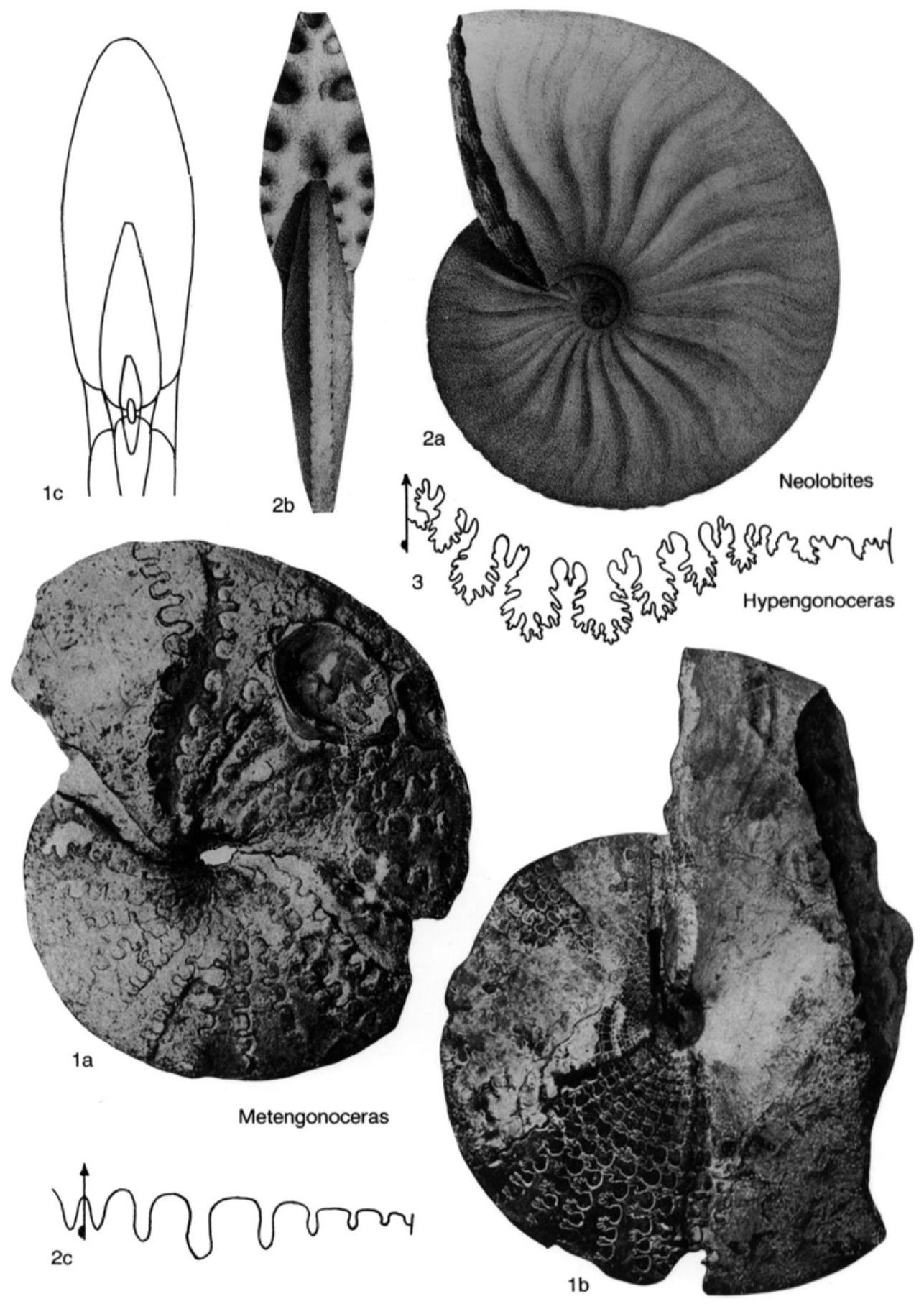Welcome to the Treatise on Invertebrate Paleontology!
Please enter a genera name to retrieve more information.

Neolobites
Classification
Phylum:
Mollusca
Class:
Cephalopoda
Subclass:
Ammonoidea
Order:
Ammonitida
Suborder:
Ammonitina
Superfamily:
Hoplitaceae
Family:
Engonoceratidae
Formal Genus Name and Reference:
Neolobites FISCHER, 1882 in 1880-1887, p. 389
Type Species:
Ammonites vibrayeanus ORBIGNY, 1841, p. 322, M
Images
(Click to enlarge in a new window)
Fig. 101, 2a-c. *N. vibrayeanus (Orbigny), France, a, b, X0.75, c, enlarged (Orbigny, 1840-1842).
Synonyms
Geographic Distribution
France, northern Africa, Syria, Saudi Arabia, Peru, Bolivia
Age Range
Beginning Stage in Treatise Usage:
Upper Cretaceous (Cenomanian)
Beginning International Stage:
Cenomanian
Fraction Up In Beginning Stage:
0
Beginning Date:
100.5
Ending Stage in Treatise Usage:
Upper Cretaceous (Cenomanian)
Ending International Stage:
Cenomanian
Fraction Up In Ending Stage:
100
Ending Date:
93.9
Description
Similar to Engonoceras in shape, but may be less involute, some species developing strong lateral and ventrolateral tubercles as in Parengonoceras. Distinguished by suture with fewer elements, all entire.
References
Museum or Author Information
Classification
Phylum:
Mollusca
Class:
Cephalopoda
Subclass:
Ammonoidea
Order:
Ammonitida
Suborder:
Ammonitina
Superfamily:
Hoplitaceae
Family:
Engonoceratidae
Formal Genus Name and Reference:
Neolobites FISCHER, 1882 in 1880-1887, p. 389
Type Species:
Ammonites vibrayeanus ORBIGNY, 1841, p. 322, M
Images
(Click to enlarge in a new window)
Fig. 101, 2a-c. *N. vibrayeanus (Orbigny), France, a, b, X0.75, c, enlarged (Orbigny, 1840-1842).
Synonyms
Geographic Distribution
France, northern Africa, Syria, Saudi Arabia, Peru, Bolivia
Age Range
Beginning Stage in Treatise Usage:
Upper Cretaceous (Cenomanian)
Beginning International Stage:
Cenomanian
Fraction Up In Beginning Stage:
0
Beginning Date:
100.5
Ending Stage in Treatise Usage:
Upper Cretaceous (Cenomanian)
Ending International Stage:
Cenomanian
Fraction Up In Ending Stage:
100
Ending Date:
93.9
Description
Similar to Engonoceras in shape, but may be less involute, some species developing strong lateral and ventrolateral tubercles as in Parengonoceras. Distinguished by suture with fewer elements, all entire.
